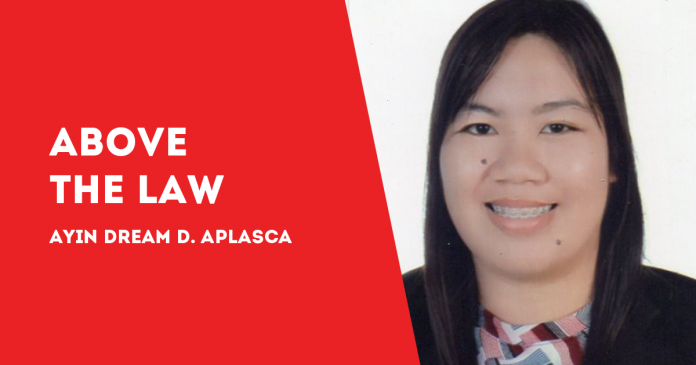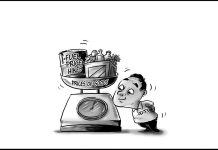
BY AYIN DREAM D. APLASCA
THE CONTROVERSIAL Alice Guo is back at the Senate again for the continuation of the probe on Philippine offshore gaming operators (POGOs). Guo was grilled on her real identity, escape from the country, and alleged links to illegal POGOs.
On the other hand, her companion Cassandra Ong and sister Shiela Leal Go were handed over to the House of Representatives and the Senate, respectively.
There is no question that both the Senate and the House have general and wide powers to conduct investigation by exercising their oversight powers. These powers are divided into three categories, namely: 1.) supervision, which refers to a continuing and informed awareness regarding executive operations in a given administrative area; 2.) scrutiny, which is also known as “question hour” and the power of confirmation; and 3.) investigation, which is also known as the “inquiry in aid of legislation.”
The last two are the most common powers exercised by the Congress. This is provided in Section 21, Article VI of the 1987 Philippine Constitution which states that “the Senate or the House of Representatives or any of its respective committees may conduct inquiries in aid of legislation in accordance with its duly published rules of procedure. The rights of persons appearing in or affected by such inquiries shall be respected.”
The power of inquiry is necessary in the legislative process. Inquiries in aid of legislation are undertaken as tools to enable the legislative body to gather information to decree wisely and effectively.
In the landmark case of Arnault vs. Nazareno, the Supreme Court held that “the power of inquiry – with process to enforce it – is an essential and appropriate auxiliary to the legislative function. A legislative body cannot legislate wisely or effectively in the absence of information respecting the conditions which the legislation is intended to affect or change; and where the legislative body does not itself possess the requisite information – which is not infrequently true–recourse must be had to others who possess it.”
Furthermore, a “question hour” relates to obtaining information in pursuit of Congress’ oversight function. Attendance is discretionary in the question hour. This is based on Section 22, Article VI of the Constitution which provides that “the heads of departments may upon their own initiative, with the consent of the President, or upon the request of either House, as the rules of each House shall provide, appear before and be heard by such House on any matter pertaining to their departments. x x x x x Interpellations shall not be limited to written questions, but may cover matters related thereto. When the security of the State or the public interest so requires and the President so states in writing, the appearance shall be conducted in executive session.”
The fundamental rights of resource persons before the specific committees should be respected, especially regarding their rights to privacy, freedom, liberty, and due process. With due respect, solons should be reminded that congressional oversights are different from court hearings or any adjudicative procedures. The latter is based on procedures to settle, through the application of law, actual controversies arising between adverse litigants and involving demandable rights./PN







